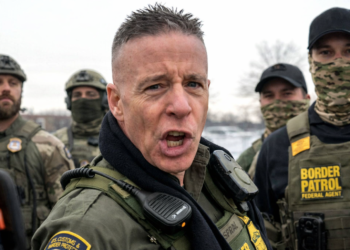In a bid to address the escalating violence between the Sudanese army and a paramilitary faction, an eastern African bloc has called for a regional summit to discuss the deployment of troops in Sudan to safeguard civilians. The conflict, which originated in Khartoum, the capital of Sudan, on April 15, has now spread to other parts of the country, forcing over 2.9 million people to flee their homes.
The Intergovernmental Authority on Development (IGAD), consisting of eight states in the Horn of Africa region, convened in Addis Ababa, Ethiopia, to initiate a peace process for Sudan. However, the initiative faced a setback as a delegation from Sudan’s army failed to attend the first day of meetings, citing objections to Kenya’s president leading the talks.
In a statement, IGAD expressed its intention to request a summit with the Eastern Africa Standby Force, a regional body comprising ten member states, to explore the potential deployment of troops from the Eastern Africa Standby Force (EASF) for the protection of civilians and to ensure humanitarian access. Sudan, Ethiopia, Kenya, Somalia, and Uganda are all members of both IGAD and EASF.
Diplomatic efforts to halt the fighting between Sudan’s army and the paramilitary Rapid Support Forces (RSF) have proven ineffective thus far, with competing initiatives causing confusion regarding the approach to bring the warring parties to the negotiating table. IGAD expressed regret over the absence of the Sudanese army delegation, which had initially confirmed its attendance.
The foreign affairs ministry of Sudan, controlled by the army, explained that the delegation did not attend the meeting due to IGAD’s refusal to replace Kenya’s President William Ruto as the head of the committee leading the talks. The ministry, through the state news agency, claimed that Ruto lacked impartiality in the ongoing crisis and previously accused Kenya of harbouring the RSF. The Kenyan government, meanwhile, stated last month that President Ruto was a neutral arbiter appointed by the IGAD summit.
During an interview with France 24, President Ruto denied the allegations of Kenya’s involvement and emphasized Kenya’s commitment to pursuing peace. He also addressed claims that South Sudan President Salva Kiir Mayardit should mediate the conflict, a preference expressed by General Mohamed Hamdan Dagalo (Hemeti), the leader of Sudan’s Rapid Support Forces.
Following the meeting, Ruto called for an unconditional ceasefire and the establishment of a humanitarian zone in Khartoum, spanning a radius of 30 kilometres, to facilitate the delivery of humanitarian aid.
Talks sponsored by the United States and Saudi Arabia in Jeddah were suspended last month, while Egypt has announced plans to host a separate summit of Sudan’s neighbouring countries on July 13 to discuss ways to resolve the conflict.
Unlike the Jeddah talks, the meeting in Addis Ababa included representatives of a civilian coalition that previously shared power with the military in Sudan before the 2021 coup.
IGAD, in conjunction with the African Union, has committed to initiating a “civilian engagement process” immediately, with the aim of achieving a peaceful resolution.
While some doubt the effectiveness of IGAD’s efforts in ending the war, organizations like the African Centre for Justice and Peace Studies (ACJPS) emphasize the need to continue pursuing all available avenues for peace. According to Amir Suliman from ACJPS, the sudden change in demands by General Al-Burhan is viewed as a strategic delay tactic by the government. However, given the severity of the conflict, it is crucial for African nations to persist in their efforts to bring an end to this devastating war.
The United Nations issued a warning on Sunday, stating that Sudan is teetering on the edge of a “full-scale civil war” that poses a significant risk of destabilizing the entire region. This cautionary message comes in the aftermath of an airstrike on a residential area over the weekend, resulting in the tragic deaths of approximately two dozen civilians, which was reported by Federal Character News.
The health ministry confirmed that the strike, which occurred in the Dar al-Salam district of Omdurman, the sister city of Khartoum, caused the loss of 22 lives and left a substantial number of civilians wounded.
This airstrike represents the latest episode in a series of distressing incidents, further fueling public outrage amidst the ongoing conflict between Sudan’s rival generals, which has persisted for nearly three months. Survivors of this conflict have reported a distressing number of casualties, with over 3,000 people killed and 6,000 wounded. Additionally, there have been distressing reports of sexual violence targeting individuals, along with accounts of ethnically motivated killings from witnesses. Widespread looting has also been observed, and the United Nations has expressed concern about potential crimes against humanity being committed in the region.
Can the combined efforts of African countries ultimately lead to an end to the Sudan war? Only time will reveal the outcome, but the ongoing diplomatic initiatives and engagement demonstrate a commitment to finding a peaceful resolution to the crisis.














